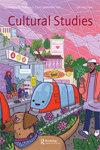对机器人未来的交叉分析
IF 1.2
3区 社会学
Q1 ANTHROPOLOGY
引用次数: 0
摘要
超越对世界的认识论取向。无论哪种方式,《野生动物》都直接为文化研究中的其他项目做出了贡献,这些项目超越了政治分类,达到了目前难以想象的程度。例如,保罗·吉尔罗伊(Paul Gilroy)的《后殖民忧郁症》(2005)敢于想象一个不再受二元种族逻辑约束的世界,尽管他谨慎地强调了有色人种之间种族团结对抗压迫性白人帝国的当代必要性。Halberstam似乎也在做类似的事情。尽管野蛮在历史上被用来为征服、奴役和种族灭绝辩护,但Halberstam仍然敢于挑战其谴责。Wild Things对野性的概念不断地与特定的文化项目和文物联系在一起,比如《Wild Thirts Are》和性分类的限制。通过Halberstam对流行文化和政治项目的研究,他的分析一直被带回定义当今殖民主义社会政治状态的种族比喻。这本书在这种背景下的嵌入性,以及它从根本上想象其他可能性的意愿,都使它对文化研究做出了重大贡献。尽管《狂野的事物》并没有为建立一个“狂野”的社会世界提供蓝图,但将其作为对这本书的严厉批评是不公平的。野生动物的认识论最初似乎不可能以这种方式具体化,但Halberstam无论如何都敢于让他的读者尝试。这些认识论远远超出了单纯的智力实验,将使规范概念和野生概念之间的体验有可能生存和存在。《狂野的事物》不局限于进步的线性概念,它提醒我们,批判性学术对创造世界和不创造世界的偏好是超越我们霸权限制思考的政治必要条件。本文章由计算机程序翻译,如有差异,请以英文原文为准。
An intersectional analysis of our robotic future
beyond an epistemological orientation to the world. Either way,Wild Things contributes directly to other projects in cultural studies that defy political classification by reaching for what is currently unimaginable. For instance, Paul Gilroy’s Postcolonial Melancholia (2005) dares to imagine a world no longer constrained by binary, racial logics, even as he is careful to forefront the contemporary necessity of racial solidarity between people of colour against the oppressive, white empire. Halberstam seems to be doing something similar. Despite wildness historically being deployed to justify subjugation, enslavement, and genocide, Halberstam still dares to challenge its condemnation.Wild Things’ conception of wildness is constantly deployed in relation to specific cultural projects and artifacts, like Where the Wild Things Are and the constraints of sexual classification. Through Halberstam’s examination of pop culture and political projects, his analysis is consistently brought back to racial tropes that define the socio-political state of colonialism today. Both the book’s embeddedness in this context and its willingness to radically imagine other possibilities, make it a significant contribution to cultural studies. ThoughWild Things does not offer a blueprint to enacting a ‘wild’ social world, it would be unfair to levy that as a damning critique against this book. An epistemology of the wild appears initially impossible to concretize in this way, but Halberstam dares his readers to try anyways. Far beyond a mere intellectual experiment, these epistemologies would make survival and existence possible for experiences between conceptions of the normative and the wild. By not limiting itself to linear notions of progress,Wild Things is a reminder that critical scholarship’s penchant for world-making and un-making is a political imperative to thinking beyond our hegemonic constraints.
求助全文
通过发布文献求助,成功后即可免费获取论文全文。
去求助
来源期刊

Cultural Studies
Multiple-
CiteScore
3.50
自引率
6.70%
发文量
0
期刊介绍:
Cultural Studies is an international journal which explores the relation between cultural practices, everyday life, material, economic, political, geographical and historical contexts. It fosters more open analytic, critical and political conversations by encouraging people to push the dialogue into fresh, uncharted territory. It also aims to intervene in the processes by which the existing techniques, institutions and structures of power are reproduced, resisted and transformed. Cultural Studies understands the term "culture" inclusively rather than exclusively, and publishes essays which encourage significant intellectual and political experimentation, intervention and dialogue.
 求助内容:
求助内容: 应助结果提醒方式:
应助结果提醒方式:


